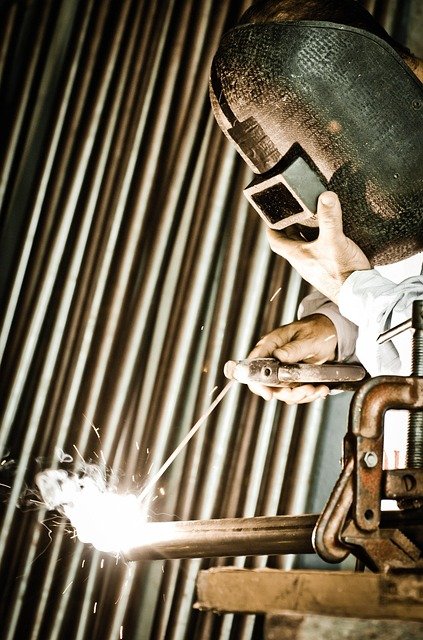The Lucrative World of Welding: Career Paths Explored
Discover the diverse and rewarding field of welding, where skilled professionals are in high demand across manufacturing and construction sectors. This comprehensive guide delves into the various career paths, essential skills, and cutting-edge tools that define modern welding. Learn how this dynamic trade offers stability, growth potential, and competitive salaries for those ready to spark their future in a hands-on profession.

The welding industry serves as a cornerstone for both manufacturing and construction, offering a plethora of career opportunities for skilled artisans. From towering skyscrapers to intricate machinery, welders play a crucial role in shaping our modern world. Let’s explore the diverse landscape of welding careers and the skills that fuel success in this dynamic field.
Welding Specializations: A Spectrum of Possibilities
The welding profession encompasses a wide array of specializations, each catering to specific industry needs. In the manufacturing realm, welders contribute to the production of automobiles, heavy machinery, and even aerospace components. These professionals often work in controlled environments, utilizing precision techniques to ensure product quality and structural integrity.
Construction welders, conversely, thrive in ever-changing outdoor settings. Their expertise is vital in erecting steel frameworks for buildings, bridges, and expansive infrastructure projects. The construction sector also demands welders for intricate pipeline work, supporting critical systems for oil, gas, and water distribution.
For those seeking unique challenges, specialized welding roles await in shipbuilding and underwater operations. These niche areas require additional training and often command premium compensation due to their demanding nature.
Crafting a Successful Welding Career: Skills and Qualifications
Excelling in the welding field demands a blend of technical prowess and personal attributes. Aspiring welders must master various techniques, including MIG (Metal Inert Gas), TIG (Tungsten Inert Gas), and stick welding. A solid grasp of metallurgy principles and blueprint interpretation further enhances a welder’s capabilities.
Beyond technical skills, successful welders exhibit meticulous attention to detail, excellent hand-eye coordination, and the ability to thrive in physically demanding conditions. The nature of welding often requires working in confined spaces or at heights, making physical stamina and a safety-first mindset essential.
While entry-level positions may be accessible with a high school diploma and vocational training, many employers value additional certifications. Organizations like the American Welding Society (AWS) offer recognized credentials that can bolster a welder’s marketability and earning potential.
Tools of the Trade: Equipping Modern Welders
Today’s welders leverage a sophisticated array of tools and equipment to execute their craft with precision and safety. The foundation of any welding operation is the welding machine itself, with variations designed for specific techniques such as MIG, TIG, or stick welding.
Complementing these core machines are numerous hand tools essential for surface preparation and weld finishing. Chipping hammers, wire brushes, and angle grinders are staples in a welder’s toolkit. Safety equipment, including auto-darkening helmets, flame-resistant attire, and protective footwear, is non-negotiable in this high-risk profession.
Precision measuring instruments like calipers and laser levels ensure accuracy in complex projects. As technology advances, some welding operations incorporate robotics and automation, particularly in large-scale manufacturing environments.
Welding’s Impact on Manufacturing Innovation
The manufacturing sector relies heavily on welding expertise to drive innovation and efficiency. In automotive production, welders are instrumental in creating vehicle frames, exhaust systems, and intricate body components. The heavy machinery industry depends on welding to fabricate robust structures capable of withstanding extreme conditions in construction, agriculture, and resource extraction.
Aerospace manufacturing pushes the boundaries of welding technology, demanding specialized techniques to produce lightweight yet durable aircraft and spacecraft components. Beyond production, welders play a crucial role in equipment maintenance and repair, extending the lifespan of valuable machinery and minimizing downtime.
Navigating Career Prospects and Compensation
The welding profession offers a stable career trajectory with ample room for growth and specialization. As seasoned welders retire, industries face a growing demand for fresh talent, creating favorable conditions for newcomers to the field.
Career advancement opportunities abound, with experienced welders often transitioning into supervisory roles, quality assurance positions, or even launching their own contracting businesses. Specialization in high-demand niches like underwater welding or aerospace fabrication can lead to premium earning potential.
While specific salary figures can vary based on location, experience, and industry, welding careers generally offer competitive compensation. Entry-level positions typically start in the $35,000 to $45,000 range, with experienced professionals in specialized fields potentially earning $70,000 to $100,000 or more annually.
It’s important to note that these figures are general estimates and should not be considered guaranteed salaries. Factors such as economic conditions, company size, and individual performance can significantly impact actual compensation.
Embracing the Future of Welding
As technology evolves and new materials emerge, the welding profession continues to adapt and grow. The integration of advanced manufacturing techniques, such as 3D printing and hybrid welding processes, opens up exciting possibilities for skilled welders willing to embrace ongoing learning.
For those seeking a hands-on career with tangible results, welding offers a unique blend of artistry and technical skill. With its essential role in shaping our built environment and manufactured goods, welding remains a vital and rewarding profession poised for continued relevance in the years to come.






